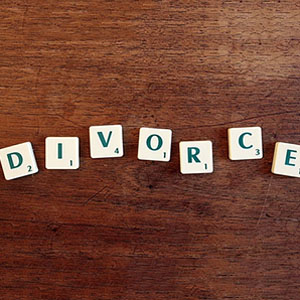
At one time, a party who wanted a divorce had to prove that the other party was at fault for the marital breakdown either as a result of adultery, abandonment or abuse. A party whose spouse was innocent of adultery or other wrongdoing could not get a divorce. As a result, being able to prove wrongdoing, most often adultery, became a ticket to freedom from an unwanted marriage. Today, no fault divorces are available. For example, in Georgia, you can get a divorce without proving wrongdoing by either party. It is enough to show that the marriage is irretrievably broken. Although adultery is still a ground for divorce, it is no longer as important as it once was because proving adultery or other wrongdoing is no longer required. So, is…Read More

In the past, you could not get a divorce unless you could prove that your spouse committed adultery, abuse or something else that the law considered proper grounds for a divorce. As divorce grew more common, the law changed to allow people to get a divorce without showing that anyone was at fault. In Georgia, the ground for divorce that does not require fault is irreconcilable differences. The statute requires a 31-day waiting period for divorces based in irreconcilable differences. Typically, the ground for a divorce where the parties agree on all of the terms is irreconcilable differences. A no-fault for divorce allows the parties to get a less hostile divorce and avoids the need to prove in court that your spouse did something wrong.Read More

An initial consultation is a first meeting between a lawyer and a potential client. It has multiple purposes. First, the lawyer and client are both attempting to see if they will be able to work together. Second, the lawyer obtains some facts about the case to determine if there is a potential conflict of interest and to see if it is the type of case the lawyer might accept. Third, it is an opportunity for the client to learn a little of the law that relates to their case and to ask questions. After introducing herself, the lawyer will give you an opportunity to tell her about your legal problem. It may be difficult to talk about your legal problem, but it is important for the lawyer to know the…Read More

Evidence Based Parenting Practices That Help Children To Cope With Divorce Divorce rates across the world are still very high. It is estimated that at least 1.5 million youth experience parental divorce. In America, at least 34% of children will be affected by the breakup of their parents’ marriage before the age of 16 years. With the high prevalence of divorce, implementing effective coping interventions for children from divorced families could have significant benefits. This article will look at some of the evidence-based interventions for helping children cope with divorce, and how parents can implement them during the transition period of divorce and separation. 1. Effective Parenting Program: The New Beginnings Program (NBP) The New Beginnings Program is a parenting-focused intervention by Dr. Sharlene Wolchik that is geared towards helping…Read More

How To Cope With Different Parenting Styles After Divorce Going through a divorce is never an easy task, and parenting your kids after a divorce can be nerve wracking if not handled properly. When you love your kids, you will agree with me that you always try to make decisions that you think are best for them regardless of what the other parent thinks. After a divorce, parents tend to have differences and disagreements about how they should bring up their children, and it is at this point that their different parenting styles come into play. What one parent may see as an absolutely acceptable parenting preference may very well be the exact opposite of what the perception of the other parent is on an issue. In this article, we…Read More

Ending a marriage can be emotionally draining and because of that, it is estimated that 95% of divorcing couples are not willing or would not prefer to take their divorce cases to trial. Many couples are opting to negotiate their divorce settlements with the help of family law attorneys or mediators whose work is to assist them in forming and finalizing an agreement. The attorneys or mediators then draw up an agreement that is signed by both partners. This divorce agreement becomes a binding contract that both spouses are expected to adhere to without fail. If as a couple you violate the terms of the contract or fail to agree outside the court, then that would definitely end up being a court case, which is normally very unpredictable, contentious and…Read More

By Susan Sherry Accepting and concluding that your marriage has ended or is coming to an end can be very distressing and quite complicated emotionally, legally and financially. Therefore, a healthy and informative attorney-client relationship would be very helpful in as far as making informed decisions is concerned. For an attorney-client meeting or relationship to be productive, the concerned parties or party must ensure that they ask the right questions and that they openly discuss with the attorney all the information required to proceed with a case. You should never let fear engulf you in as much as sharing information with your lawyer is concerned because all information you disclose to your attorney is kept confidential. Being upfront and truthful helps your divorce lawyer to better understand your legal issues,…Read More

Updated: Mar 26, 2018 Parenting is tough. It is far, far tougher when you and the child's other parent live apart. Following are some tips to consider to make it easier and more effective for your child. First and foremost, DO UNTO OTHERS AS YOU WOULD HAVE THEM DO UNTO YOU. It does not matter if you are a Christian, another religion or no religion at all, this is good advice. If you If you wouldn't like it if two people you love were trying to get you to choose one of them, don't do it to your child. If you don't want to be yelled at or cursed, don't do it to your co-parent. Everything else is a variation of this rule. Keep conversations about your child about your…Read More

Updated: Mar 22, 2018 Georgia makes a distinction between the biological father of a child and the legal father of a child. A legal father has legal rights such as custody or visitation. The biological father may or may not have legal rights depending upon whether he is also the legal father of the child. The husband of the mother of a child born during a marriage is automatically the legal father of the child even if he is not the biological father. Both spouses have legal rights. By contrast, a child born out of wedlock has one legal parent – the mother. She has all the parental power. She makes all the decisions including whether to permit visitation with the biological father. The biological father has almost no legal…Read More

An annulment is a legal proceeding that legally nullifies a void marriage. Annulments are rare today. It is not sufficient that there is adultery, abandonment, abuse, etc. These would be grounds for a divorce. An annulment can only be granted if the marriage is void. A void marriage is a marriage of persons unwilling to marry, fraudulently induced to marry (tricked into the marriage by deceit, for example)) or unable to contract a marriage. To be able to contract a marriage, a person may not already be married unless the marriage has been dissolved (i.e., there was a divorce or annulment of the prior marriage). To be able to contract a marriage, the parties must be of sound mind and at least 18 years of age (or 16 or 17…Read More